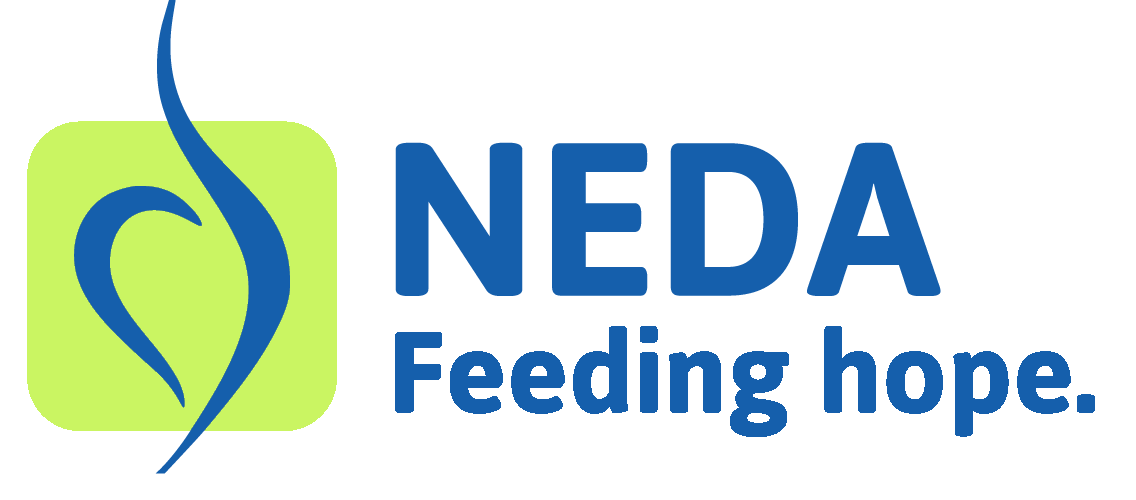the importance of national eating disorder awareness week, by EP

This special article is written for yooou! by 18-year-old, EP.
This week, February 22-26, 2021, is National Eating Disorder Awareness (NEDA) week. Why should we care to spread awareness? Because there is HOPE that recovery is possible and HELP is available!! People struggling need to hear this, and people who know others that are struggling need to be educated on how to help.
Eating disorders are the deadliest mental illness.
Every 52 minutes, someone will die as a result. Hear this… anyone, and I mean ANYONE, can have an eating disorder; regardless of their age, weight, race, culture, size, background, economic class, gender identity, shape, sexual orientation, etc. Eating disorders do NOT “look” a certain way. You do not have to be a “certain size” to be sick. You deserve to get help if you’re struggling with your relationship with food and your body, etc. You have permission to get support, no matter what anyone else says.
I didn’t even know NEDA week was a thing until I struggled with an eating disorder myself. I didn’t know A LOT about eating disorders in general. I used to be one of those people who just thought someone with an eating disorder was skinny… I used to be one of those people who took part in systematic bias against the illness. I just simply wasn’t educated. THIS is why we need to spread awareness.
What is an eating disorder??
Eating disorders are real, complex, bio-psycho-social diseases that can have serious consequences for health, productivity and relationships. Yes, the person struggling is greatly affected, but so are the loved ones of that person. It takes a village to beat an eating disorder, and that village is impacted too.
Eating disorders are NOT fads, phases, or lifestyle choices. HEAR THAT!!! If you are struggling, you did not CHOOSE this battle to fight. But FIGHT it. It will change the course of your life.
The most common eating disorders are anorexia nervosa, bulimia nervosa, and binge eating disorder. Other eating disorders include: avoidant/restrictive food intake disorder, rumination disorder, pica, other specified feeding or eating disorder, and unspecified feeding or eating disorder.
People struggling with an eating disorder often become obsessed with food, body image, and/or weight. These disorders can be life-threatening if not recognized and treated properly. The earlier a person receives treatment, the greater the likelihood of full recovery.
How do I know I’m struggling with an eating disorder / how do I know someone around me is struggling??
Some common warning signs of an eating disorder: (***TRIGGER WARNING***)
- Preoccupation with weight, food, calories, dieting, and/or body image.
- Development of abnormal, secretive, extreme, or ritualized food or eating habits.
- Withdrawal from usual friends and activities.
- Evidence of binge eating, such as the disappearance of a large amount of food.
- Evidence of purging behaviors, including frequent trips to the bathroom after meals, self induced vomiting, periods of fasting or laxative, diet pill, or diuretic abuse.
- Compulsive or excessive exercising
- Discoloration or staining of the teeth (from purging).
- Feelings of isolation, depression, anxiety, or irritability.
These are not the only signs of an eating disorder. If you are struggling or think someone you know is struggling, do not hesitate to reach out for help. It couldn’t hurt. Ever. You might even save a life.
It can be very overwhelming to see a loved one struggle with an eating disorder or disordered eating. You can help your loved one on the path to recovery by educating yourself about eating disorders, starting a conversation, and sharing supportive resources and treatment options…
What to say to someone you think is struggling / how to talk to them about your concerns…
- Be completely honest in a loving, supportive, and respectful way (remember that they did not choose this illness).
- Say something early on… do not wait until the physical and emotional health complications are beginning to make an appearance.
- Do not keep your concerns a secret because you are fearful of their reaction to your concerns… again, you could be saving a LIFE.
- If your loved one is under 18 years old, an adult needs to know immediately.
- With a calm and gentle tone, talk to your loved one about your concerns and how they make you feel… Share specific moments / memories in which you were concerned, scared, or felt uneasy / uncomfortable around their eating or exercise rituals.
- Focus on specific signs and symptoms, NOT their weight or appearance.
- Be non-confrontational… use “I statements” and avoid simple solutions such as “just eat”.
I’m alive today because someone in my life cared enough to talk to me about what was going on. My life was saved. This may sound dramatic but it’s the truth. YOU could be that person for someone. Reach out for help. Start a conversation. Save a life.
If you are reading this and you are struggling, reach out. Know that you are loved and someone does care about your life and your health. Recovery is worth the work. I know it feels so hard to talk about at first. I promise it’s worth it. I promise it will change your life in the best way possible. I love you. I care about you. Know that you are NOT just a statistic… you deserve to heal and recover.
For information, resources,
and to get involved, visit:
www.nationaleatingdisorders.org
CONTACT HELPLINE
Call or chat for resources
and treatment options.
800-931-2237
https://www.nationaleatingdisorders.org/help-support
https://www.nationaleatingdisorders.org/chat-offline?utm_source=comm100
text ‘NEDA’ to 741-741 for 24/7 crisis
support



